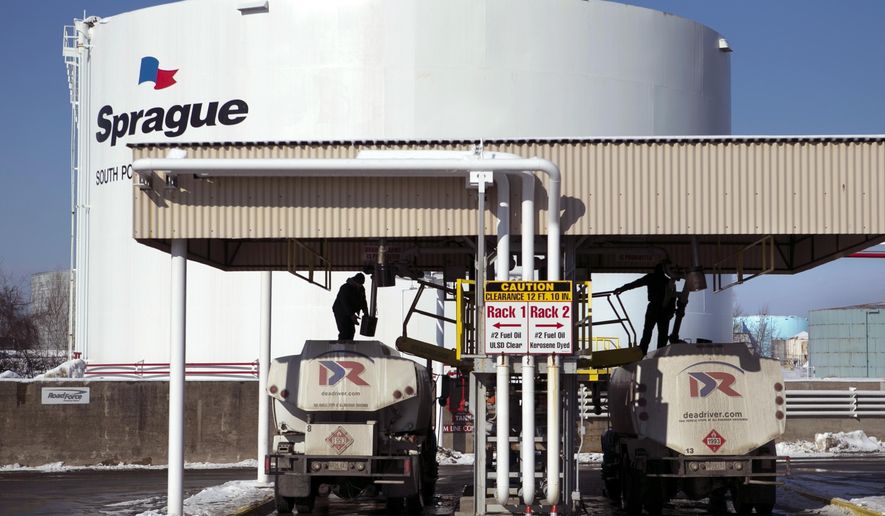The U.S. has only a 25-day supply of diesel fuel, lowest since 2008, just as demand is surging ahead of winter.
The report by the Energy Information Administration is raising concerns that trucking and home heating costs will continue to rise this winter, cutting deeper into household budgets and further straining supply chains.
The national average price of diesel as of Wednesday was at $5.31 a gallon — $1.70 more than last year.
White House National Economic Council Director Brian Deese told Bloomberg TV Wednesday that diesel inventories are “unacceptably low” and “all options are on the table” to increase supply and lower prices. But it’s not clear what steps the administration can take.
The Northeast Home Heating Oil Reserve, a component of the Strategic Petroleum Reserve, has one million barrels of diesel in case of a disruption in supplies.
“We have looked very carefully at being prepared to deploy as and when necessary,” Mr. Deese said.
Republicans in Congress are warning of economic consequences and blaming the administration for short-sighted energy policies.
“The day the trucks stop running is the day the economy crashes,” tweeted Rep. Troy Nehls, Texas Republican. “And it’s not getting better anytime soon.”
Rep. Andy Biggs, Arizona Republican, said the shortage is a result of “Biden’s assault on fossil fuels.”
“This crucial fuel is used for transporting goods, farming, and military vehicles,” Mr. Biggs wrote on Twitter. “He is putting America Last and bringing us back to the stone age.”
Craig Fuller, a supply-chain media executive, said diesel is the second-highest cost for U.S. trucking companies, behind labor.
“This is horrible news heading into one of the worst freight markets in years,” Mr. Fuller tweeted.
The administration has tapped into the SPR to blunt rising gas prices in an election year, despite concerns that the move could leave the U.S. with fewer options in case of another national emergency.
Another possibility is for the U.S. to restrict diesel fuel exports. Petroleum industry groups warned against that step earlier this month.
“Banning or limiting the export of refined products would likely decrease inventory levels, reduce domestic refining capacity, put upward pressure on consumer fuel prices and alienate U.S. allies during a time of war,” the American Petroleum Institute and the American Fuel and Petrochemical Manufacturers wrote in a joint letter.
Diesel fuel is relatively dirty, an aspect that Vice President Kamala Harris noted this week as she hailed a $5 billion administration initiative to convert school buses across the nation to mostly electric vehicles.
“75% of our school buses are fueled by diesel fuel, which contributes to very serious conditions that are about health and about the ability to learn,” Ms. Harris said.
Diesel stockpiles in New England, where residents rely more on the fuel in winter for home heating, are about one-third of normal levels for this time of year.
• Dave Boyer can be reached at dboyer@washingtontimes.com.




Please read our comment policy before commenting.